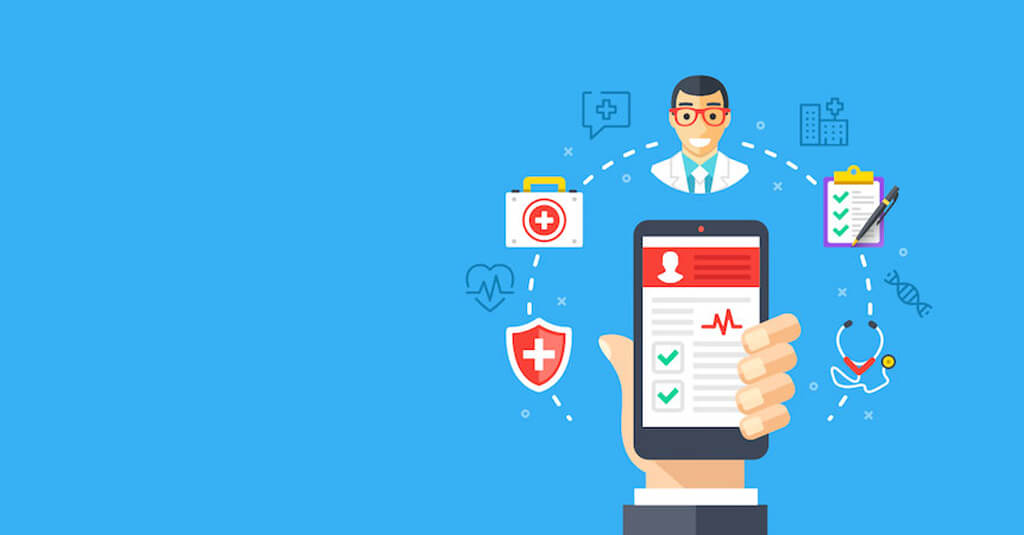As IT infrastructure continues to evolve at a rapid rate, ensuring optimal performance for critical medical services is more important than ever before. Mobile device management (MDM) solutions offer invaluable support in streamlining operational processes while optimizing your existing technology resources, enabling healthcare providers to provide quality care with minimal disruption and maximum efficiency.
Understanding the Basics of Mobile Device Management (MDM)
As mobile devices become increasingly essential for businesses and organizations, ensuring their security and management has become a crucial aspect.
Mobile Device Management (MDM) is a system designed to monitor and manage mobile devices in an organization while keeping them secure and up-to-date. MDM allows organizations to configure and manage mobile devices remotely without requiring direct physical access.
Through MDM, organizations can enforce security policies, install and update applications, and wipe data from lost or stolen devices, among other things.
Advantages of Leveraging MDM for Healthcare IT Services
Healthcare IT services are constantly evolving, with new advancements and technologies being introduced regularly. One such technology that has proven to be of immense benefit to the healthcare industry is master data management (MDM).
Leveraging MDM can help healthcare providers streamline their operations and improve patient outcomes significantly. With MDM, healthcare organizations can effectively manage their data assets, maintain data accuracy, and ensure data consistency across multiple systems.
This not only improves data quality and decision-making capabilities but also enhances operational efficiency. Furthermore, MDM can help healthcare providers comply with various regulatory requirements and mitigate the risks associated with data breaches.
Security Considerations for Implementing MDM in Healthcare Settings
The implementation of mobile device management (MDM) in healthcare settings requires careful consideration of security measures to ensure the safety and privacy of sensitive data.
With the increasing use of mobile devices in hospitals and clinics, it is important to have a robust security strategy in place to protect personal health information, including patient data and medical records. Healthcare organizations must address potential risks such as data breaches and cyberattacks, which can ultimately compromise the confidentiality of critical information.
As such, healthcare providers must prioritize security measures such as encryption, secure authentication protocols, and regular monitoring to maintain the integrity and confidentiality of patient data.
The Different Types of MDM Solutions Available to Healthcare Organizations
As healthcare organizations work to improve patient outcomes and streamline operations, many are turning to mobile device management (MDM) solutions to help them achieve their goals.
There are a variety of MDM options available to healthcare organizations, each with its own set of features and benefits tailored to specific needs.
Some organizations may opt for cloud-based solutions that can be accessed from anywhere, while others may prefer on-premises solutions that offer more control over data and security.
Whatever the approach, one thing is clear: MDM solutions are becoming an increasingly important tool for healthcare organizations looking to provide better care and stay ahead of industry trends.
Benefits of Integrating an MDM Solution with Your Existing System Infrastructure
In today’s digital age, managing data can be a daunting task. With the ever-increasing amount of data being generated on a daily basis, it is essential to have a solution that can efficiently manage and organize this data. That’s where an MDM (Master Data Management) solution comes into play.
Integrating an MDM solution with your existing system infrastructure can bring numerous benefits. Firstly, it can improve the accuracy and consistency of your data by removing duplicates and ensuring that all data is up-to-date.
Additionally, it can enhance data security by providing better control over access rights and data breaches. Moreover, an MDM solution can streamline data entry and retrieval processes, saving both time and money.
Best Practices for Managing and Maintaining Your MDM Solution
As companies continue to grow, so does their data. That’s where master data management (MDM) comes in—it’s a solution that helps businesses keep their data in order and accessible.
However, implementing an MDM solution is only the beginning. In order to fully reap the benefits of this technology, it’s imperative to maintain and manage it properly.
Fortunately, there are plenty of best practices to help guide companies in their usage of MDM, such as consistently reviewing and updating data, enforcing strict data governance policies, and integrating the solution with other applications.
Mobile device management is an important consideration for healthcare organizations looking to stay secure and compliant with industry regulations. When utilizing MDM within a healthcare setting, there are key advantages, like enterprise-wide security, improved employee productivity, and greater data visibility and governance.
Healthcare consultants can provide advice regarding deploying an effective MDM initiative while leveraging their technical expertise in this area for maximum efficiency. Ultimately, healthcare organizations should seek to understand the basics of MDM while remaining cognizant of its profound capabilities when utilized in the proper context.




